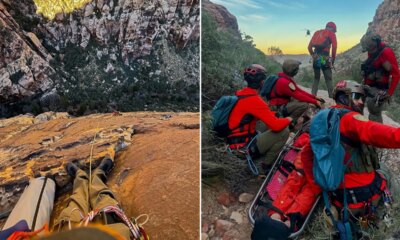University of Utah President Taylor Randall is scheduled to meet with President Donald Trump this week.
Randall is expected to be among several attendees at a White House roundtable meeting on Friday to discuss solutions for the rapidly evolving landscape of college athletics with the president, a U. spokesperson said.
The meeting could be postponed, however, due to the war in Iran. As of Monday, “the odds of it happening this week are 50-50 at best,” according to Yahoo Sports.
If the roundtable happens as scheduled, the guest list includes several current and former notable figures in sports, including NBA Commissioner Adam Silver, golf legend Tiger Woods and former Alabama head coach Nick Saban.
Utah Gov. Spencer Cox confirmed in a social media post on X that he would be in attendance as well.
“Thank you [President Donald Trump] for inviting me to participate, and for your commitment to addressing challenges in college sports,” Cox said on X. “[Taylor Randall] is a great university leader who will work with us on solutions for this critical issue.”
(Trent Nelson | The Salt Lake Tribune) University of Utah President Taylor Randall speaks on campus on Feb. 7.
Earlier this year, Randall was called on by the federal House Committee on Education and Workforce to schedule a briefing to discuss the school’s planned private-equity partnership with Otro Capital, according to a report from Sportico.
The Utes announced their proposal in December of last year, which is a first-of-its-kind agreement between a university’s athletic department and a private equity company.
Utah’s deal with Otro has yet to be finalized. In a Feb. 10 interview with The Salt Lake Tribune, Randall said the university is “still just working through all of the issues systematically.”
“We want to do this in the right way to set both of us up for future success,” he added.
The move is expected to infuse hundreds of millions of dollars into the U.’s athletic department to help sustain the financial future of the program with rising deficits across the industry.
“I don’t think any of us would prefer to be in this situation right now,” Randall said in a faculty senate meeting in January. “But it just is what we’re facing.”








































